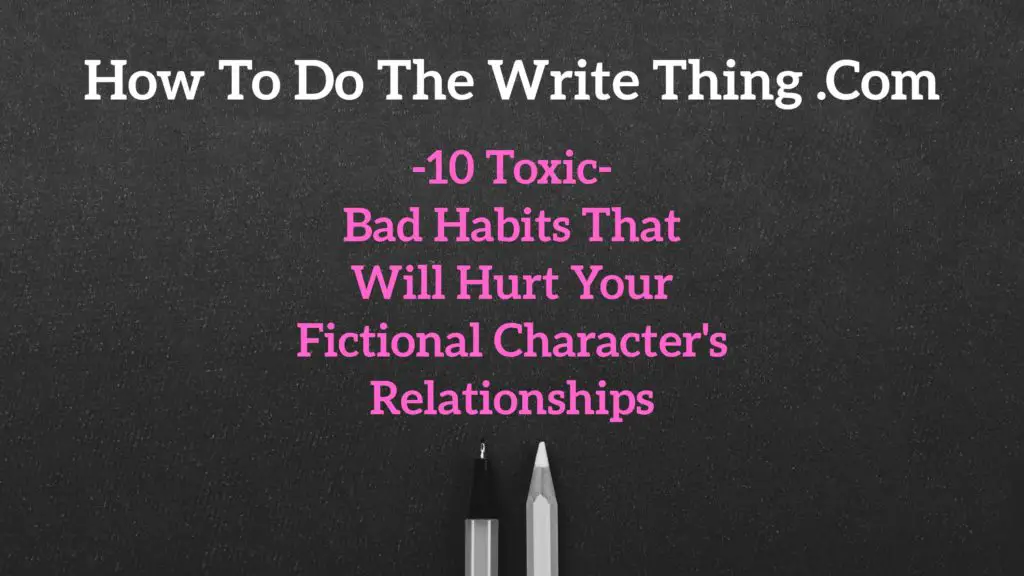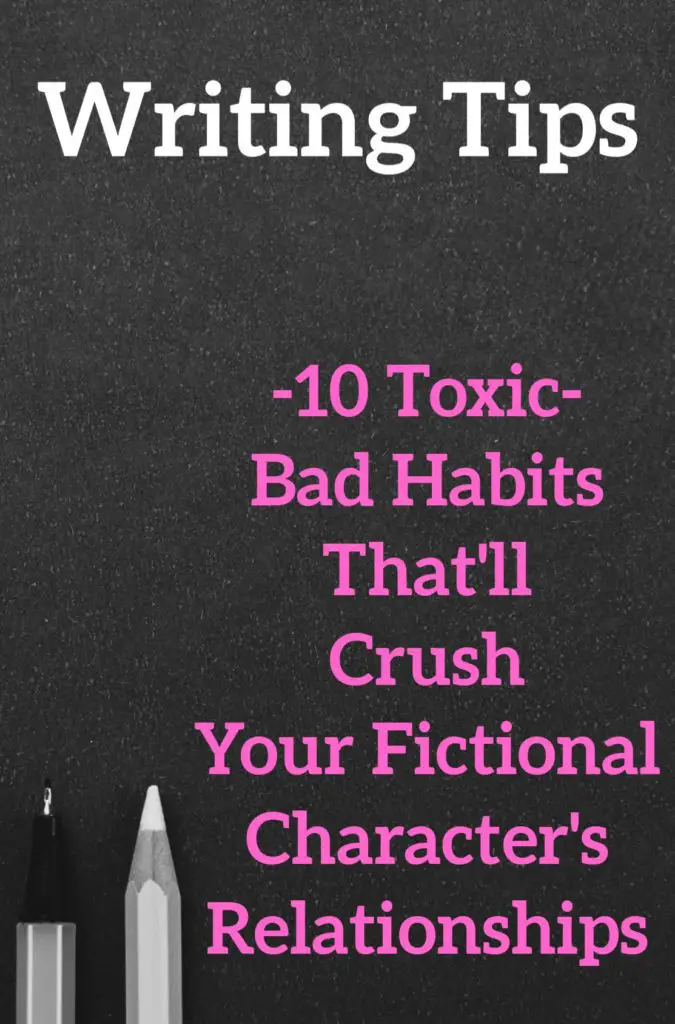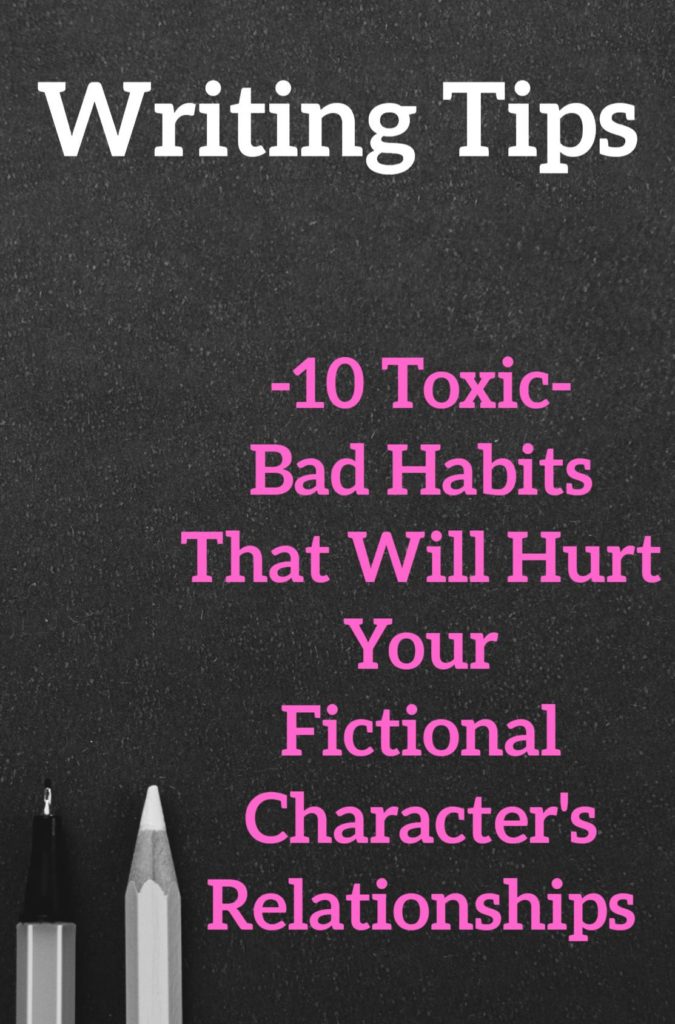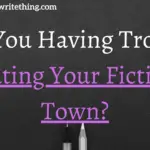
10 Toxic Bad Habits That’ll Crush Your Fictional Character’s Relationships
We’re working on a bad habits series for fictional characters right now so feel free to look around to see more ideas for bad habits for your Fictional Characters.
How will you use bad habits in your writing to crush your fictional character’s relationships?
10 Toxic Bad Habits That’ll Crush Your Fictional Character’s Relationships
1. Your character is obnoxiously overdramatic
2. Becoming bitter and acting upon that bitterness
3. Not planning out important discussions
4. Being unforgiving
5. Wanting to talk out every little thing that “looks” like a problem
6. Avoiding talking about any problems to “avoid fighting”
7. Fighting in public or making a scene in public to manipulate the other character
8. Too much PDA that makes one character feel more uncomfortable than the other
9. One character continually believes that their significant other’s family is the problem
10. One character makes the other their pet project and tries to change them radically
Interested in starting a blog of your own? Check out Bluehost.
Bluehost hosts your blog so that you can own your domain and make money blogging. Check them out only if you’re interested in making money blogging; otherwise, go for a free blog instead 🙂
Try Grammarly, The Free tool that should be in every writer’s toolbelt.
10 Toxic Bad Habits That’ll Crush Your Fictional Character’s Relationships

Bad habits make writers think about what goes on in a character’s mind.
Giving fictional characters bad habits is a good and natural way to create conflict and resolution between your characters.
Fictional Characters need to be seen as not perfect, but as primitive and mortal. Unless of course they are immortal 😉 but even then, adding some sort of weakness to them helps our reader mesh with them.
Don’t overthink bad habits. Just work on giving your fictional character a few that make sense.
Combining three or four makes sense, but don’t overdo it with 10 or more unless they are supposed to be a real slob.
Also, figure out good consequences for the habits you give.
Do some bad habits affect others? What are the consequences of certain combined bad habits?
Does one character not like their in-laws?
Do the in-laws, not like the new addition to the family?
Are their passive-aggressive remarks being made?
Do they talk badly about one another to other family members?
Do they let things bottle up and sweep things under the rug?
Where do your characters’ bad habits lead them?
Do they eventually blow up into a fit of rage?
Do they vent to friends and family about the other in-laws?
In other words, feel free to think through what bad habits you want them to have and how bad habits can affect each other and have a compound effect on your fictional character. We hope you enjoyed 10 Toxic Bad Habits That’ll Crush Your Fictional Character’s Relationships and that it helped you think more creatively about your characters and their possible bad habits.
Happy writing 🙂
Other Popular posts you might just want to take a gander at:
5 Tricks How to Hide Your Villain Right Before Their Eyes
How To Write 4 Scenes That Reveal Who Your Character Is Seamlessly
4 Tips How to Write your Character Hitting Rock Bottom
Interested in starting a blog of your own? Check out Bluehost.
Bluehost hosts your blog so that you can own your domain and make money blogging. Check them out only if you’re interested in making money blogging; otherwise, go for a free blog instead 🙂
Try Grammarly, The Free tool that should be in every writer’s toolbelt.
10 Toxic Bad Habits That’ll Crush Your Fictional Character’s Relationships

10 Toxic Bad Habits That’ll Crush Your Fictional Character’s Relationships
Make sure your posts are readable. Use this readability score check
Interested in starting a blog of your own? Check out Bluehost.
Bluehost hosts your blog so that you can own your domain and make money blogging. Check them out only if you’re interested in making money blogging; otherwise, go for a free blog instead 🙂
Try Grammarly, The Free tool that should be in every writer’s toolbelt.




